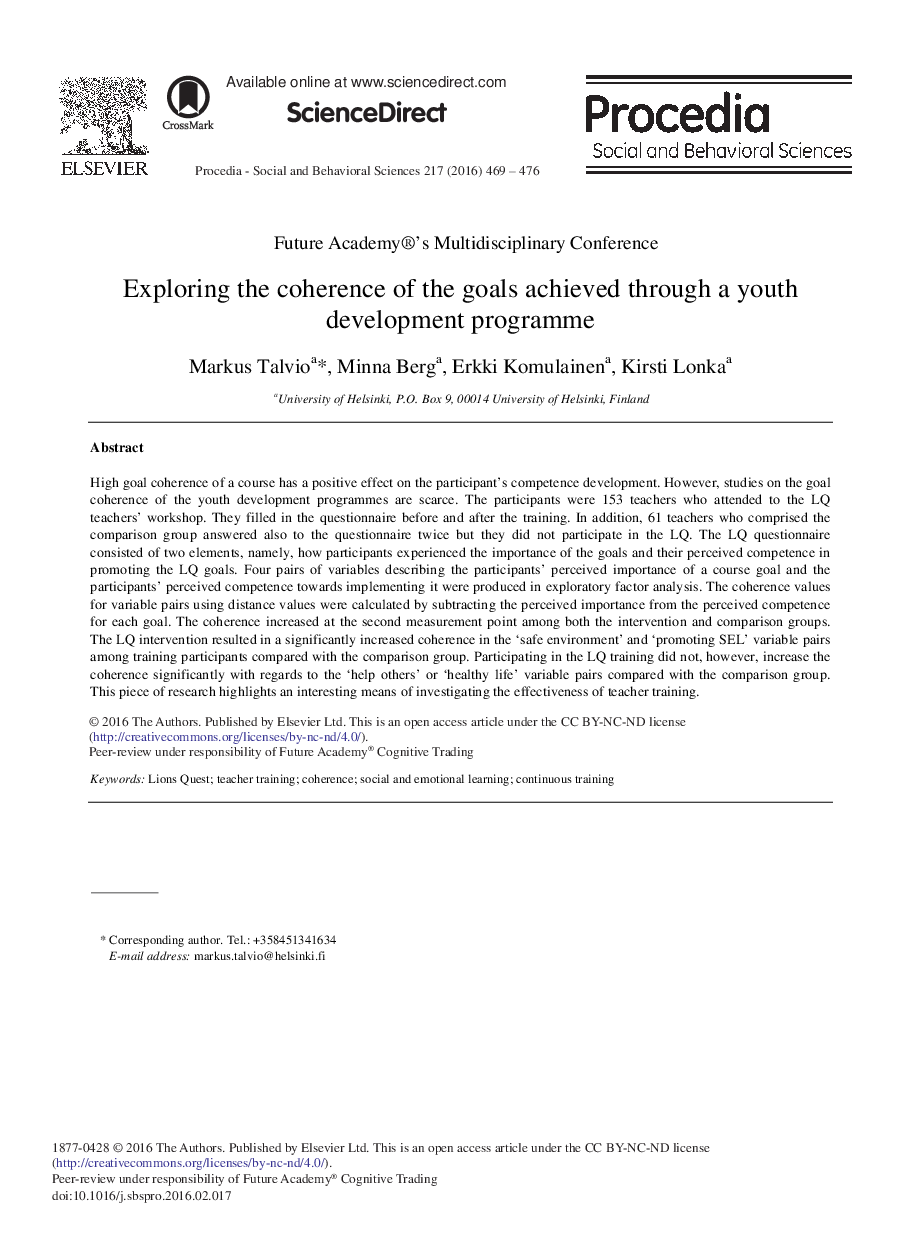| کد مقاله | کد نشریه | سال انتشار | مقاله انگلیسی | نسخه تمام متن |
|---|---|---|---|---|
| 1108615 | 1488342 | 2016 | 8 صفحه PDF | دانلود رایگان |
High goal coherence of a course has a positive effect on the participant's competence development. However, studies on the goal coherence of the youth development programmes are scarce. The participants were 153 teachers who attended to the LQ teachers’ workshop. They filled in the questionnaire before and after the training. In addition, 61 teachers who comprised the comparison group answered also to the questionnaire twice but they did not participate in the LQ. The LQ questionnaire consisted of two elements, namely, how participants experienced the importance of the goals and their perceived competence in promoting the LQ goals. Four pairs of variables describing the participants’ perceived importance of a course goal and the participants’ perceived competence towards implementing it were produced in exploratory factor analysis. The coherence values for variable pairs using distance values were calculated by subtracting the perceived importance from the perceived competence for each goal. The coherence increased at the second measurement point among both the intervention and comparison groups. The LQ intervention resulted in a significantly increased coherence in the ‘safe environment’ and ‘promoting SEL’ variable pairs among training participants compared with the comparison group. Participating in the LQ training did not, however, increase the coherence significantly with regards to the ‘help others’ or ‘healthy life’ variable pairs compared with the comparison group. This piece of research highlights an interesting means of investigating the effectiveness of teacher training.
Journal: Procedia - Social and Behavioral Sciences - Volume 217, 5 February 2016, Pages 469-476
